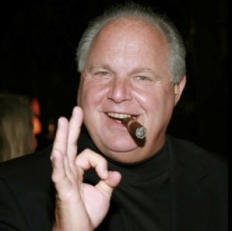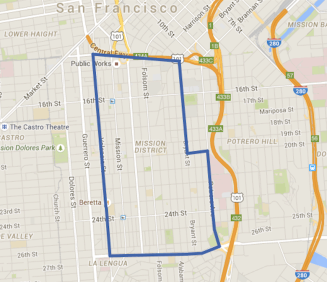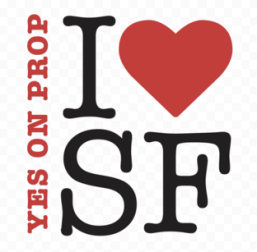This one is a short ballot. I mean really short. Only 6 ballot measures and just a few candidate races with more than one contender. Incredibly, 7 out of 9 local races are either unopposed or virtually unopposed! Weird. Or is it?
In the last few years, local politics has seemed less important to many of us. Given what is happening at the national level (see: a President who thinks he is above the law, the Democratic primary, the worsening gun violence crisis), it feels like arguments over zoning laws and homeless encampments are a bit like rearranging the deck chairs on the Titanic. The planet is LITERALLY BURNING…every one of us may be homeless in a few decades.
This all makes me wonder if this short ballot and multiple uncontested races has something to do with our collective despondence about the national situation. Perhaps the political class in San Francisco is standing down because they would rather use their energy to battle a common enemy in the White House than fight each other over taxes. …just kidding. it’s just an off-cycle election and the voter turnout is predicted to be an all-time low. Without big races at the top (e.g., Governor, President), off-cycle ballots are predictably short.
Before we continue, I should clarify that the opinions I express in this voter guide are my own, and should not be attributed to my employer, my adorable toddler, or any of the many Democratic clubs I belong to. Please send all hate mail to me at info (at) votealix.com.
In the interest of full disclosure, I’m a mom, a liberal Democrat, an attorney and a government nerd, whose passions include arts and culture, getting more women elected to public office, and protecting our environment for future generations. I’ve worked on more political campaigns than I can count, including my own, and I also like long walks on the beach.
Here’s the summary, with detailed explanations below:
Prop A – Affordable Housing Bond – YES
Prop B – Minor Changes to the Aging and Adult Services Commission – YES
Prop C – Reversing the City’s new restrictions on flavored vaping products – NO NO NO
Prop D – Congestion Tax on Ridesharing Companies – YES
Prop E – Affordable Housing for Teachers and School Employees – YES
Prop F – Campaign Contributions and Campaign Ads – NO
Mayor – London Breed
Board of Supervisors, District 5 – Vallie Brown
City Attorney – Dennis Herrera
District Attorney – Suzy Loftus
Public Defender – Mano Raju
Sheriff – Paul Miyamoto
Treasurer – Jose Cisneros
School Board (one seat) – Jenny Lam
Community College Board (one seat) – Ivy Lee
MEASURES
Prop A – Affordable Housing Bond – YES
You already know this: the rising cost of housing in SF is squeezing out the middle class. Affordable housing is harder and harder to find, and it’s a contributing factor in our growing homelessness problem. Well…the city wants to build new affordable housing, and Prop A will enable the city to borrow $600 million by way of a general obligation bond.
In case you need a refresher on municipal funding mechanisms (ahem), here you go:
A general obligation bond:
- Is a low-risk way for local governments to raise funds for projects like roads, parks, equipment, and bridges.
- Imposes a new property tax on homeowners, to pay the bond back over time.
- Needs 66.6% of the vote to pass, like any other tax in California
- Must be spent on the specific projects listed in the bond, and always includes enforcement and transparency mechanisms to make sure the funds are being spent appropriately.
Prop A is the biggest housing bond in San Francisco history, and the city estimates that it will fund 2800 new housing units in the city.
It would impose a new tax of 1.9 cents per $100 of assessed property value – which means that if you are a homeowner, and your home is assessed at $1 million, you will pay $190 per year in property tax. However, your property taxes won’t actually go up – the bond is structured so that the new tax will only be imposed as old taxes expire, so your taxes will remain at 2006 levels even after Prop A passes. Win!
The revenue will be divided like this: $220 million to low income housing, $150 million for public housing, $150 million for senior housing, $60 million for middle income housing, and $20 million for educator housing. What is “middle income,” you ask? Up to $215,500 per year for a household of four. Oh, San Francisco.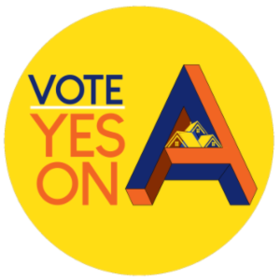
As a homeowner, I don’t mind paying such a small amount for $600 million in new affordable housing in the city. I’m really hoping it will make a dent in our housing crisis. Unfortunately, the projects funded by Prop A will still have to face the ridiculous amount of red tape that all residential development projects do – and this Board of Supervisors is dead set against streamlining the process.
The folks who oppose Prop A are the same people who dislike taxes generally. OR they are worried that this measure doesn’t go far enough, since it will only build a few thousand units. I say: something is better than nothing, and as a homeowner, I’m happy to chip in.
Supporters include: Mayor Breed, the entire Board of Supervisors, the SF Chronicle, the SF Examiner, San Francisco Democratic Party, SPUR, SF Chamber of Commerce, Sierra Club, literally everyone across the political spectrum.
Opponents include: People who hate all taxes; Libertarian Party of San Francisco.
Prop B – Minor Changes to the Aging and Adult Services Commission – YES
Prop B is a technical measure that no one opposes, so I won’t waste your time on it. The measure will rename several city agencies that coordinate services for seniors and people with disabilities, changing the Department of Aging and Adult Services to the Department of Disability and Aging Services. The commission that oversees that department would similarly become the Disability and Aging Services Commission. The idea is that adding the word “disability” to their names will clarify what the agencies do, so that folks with disabilities will know where to go when they are seeking help from the city. The measure will also require the commission to include a person with a disability, a veteran and a senior. Makes sense to me!
Supporters: Mayor Breed and the entire Board of Supervisors; SF Chronicle; SF Examiner; SF Democratic Party; SPUR
Opponents: No one.
Prop C – Reversing the City’s new restrictions on flavored vaping products – NOOO!
Prop C is one of the wildest ballot measures in San Francisco history, and I really hope it fails.
The measure was placed on the ballot by Juul, San Francisco-based e-cigarette manufacturer, in order to reverse a new ordinance banning vaping products in San Francisco. The campaign is totally sleazy, if you ask me, because it is intentionally confusing.
Prop C would impose new restrictions on vaping like limiting how many devices and cartridges can be purchased at a time, prohibiting their sale to anyone under the age of 21, and banning the marketing of vaping products to minors. Keep in mind that most of these rules already exist as to tobacco products, so they are really a red herring. More important, this complex set of regulations would permanently legalize the sale of vaping products in San Francisco. Because it’s a ballot measure, it can’t be modified by the Board of Supervisors. Ugh.
But here’s the sleazy part: the campaign ads made it sound like Prop C would impose NEW restrictions on vaping that would protect children from the addictive habit. However, the whole purpose of the measure is to overturn the new vaping ordinance so that e-cigarettes could continue to be sold in San Francisco. Incidentally, Juul has been under fire nationwide for marketing their flavored tobacco products to teens.
Juul put Prop C on the ballot, and then spent $10+ million on the campaign… and then on September 30, in a shocking reversal, they announced they were withdrawing their support. Juul got a new CEO, who apparently (has a conscience and) re-evaluated the company’s political activities. So now the measure is in this weird purgatory where it has qualified for the ballot, and lots of people have seen their misleading campaign ads, and plan to vote for it, and yet its sponsor isn’t supporting it any more.
I feel like I should also mention the recent news about vaping, including more than 1000 incidents of illness and a few deaths. Most of those vaping-related injuries have been associated with THC-containing products bought from underground sources, though the scientific community is still investigating. Prop C is only about tobacco products produced by major e-cigarette distributors.
And while vaping tobacco products might not be the cause of serious injuries and deaths in the news, it is not the panacea for smokers that Juul and the Prop C campaign claim. It makes me sad how many friends I have who are addicted to vaping – and they all think it’s safer than smoking cigarettes, despite a growing body of evidence to the contrary. Juul’s claim that vaping is a healthy alternative to smoking isn’t supported by any legitimate medical authority, and they have gotten the company into trouble with regulators.
Here’s the strongest case I have against Prop C: the regulation of vaping has no business being in a ballot measure. A ballot measure is a blunt instrument: it can’t be amended except by another ballot measure, which is an expensive and time-consuming process. Measures aren’t intended for nuanced and complicated subjects like this one, particularly since this issue continues to evolve as the medical profession learns about the relative safety of vaping. These proposed rules shouldn’t be permanent and hard to amend – quite the opposite – they should be written by the Board of Supervisors, and iterated over time, and also subject to public input and scrutiny.
Anyhoo, I hope this is enough information for you to vote against Prop C. Even if you think that sales of vaping products should be allowed in San Francisco, and the new ordinance should be overturned, this measure is not the way to do it. Vote no.
Supporters: Coalition for Reasonable Vaping Regulation (i.e., Juul); Neighborhood Grocers
Opponents: Speaker Nancy Pelosi; Former NY Mayor Michael Bloomberg; SF Democratic Party; SPUR; SF Chronicle; SF Examiner; D10 Supervisor Shamann Walton; San Francisco Kids vs. Big Tobacco (“a coalition of doctors, parents, and community groups protecting youth from flavored tobacco products and addiction, sponsored by nonprofit health organizations.”)
Prop D – Congestion Tax on Ridesharing Companies – YES
Prop D will impose a new tax on Uber and Lyft rides you take within San Francisco. You’ll pay an additional 3.25% on solo rides in gas vehicles and a 1.5% tax on shared rides or rides in electric vehicles. The measure will authorize the city to issue tax bonds up to $300 million to be spent on improving bus and train services, as well as pedestrian and bicycle infrastructure like protected bike lanes. The bonds will be paid back using the new tax revenues.
You may be surprised to learn that the measure is funded by Lyft and Uber, whose businesses will almost certainly suffer once the new tax is approved.
 Prop D was introduced by Supervisor Aaron Peskin, who worked with Uber and Lyft to settle on the tax rate in exchange for their support for the measure. In my day job, I work for Lyft, and I am proud to support the measure because I think public transit and traffic safety in San Francisco desperately need improvement. As a Lyft employee, I’m a *little* nervous about what the new tax will do to our business in San Francisco. But the average cost of a ride will go up by less than a dollar, so I’m hoping most Lyft and Uber users will barely notice the change. The added cost to solo rides will almost certainly push some users into shared rides (which are less expensive), which is a very good thing. Shared rides help ease congestion by making each car trip more efficient, ultimately getting more cars off the road. The most price-sensitive users will probably use transit, bikes and scooters more, and that will also help in making traffic more bearable in the city.
Prop D was introduced by Supervisor Aaron Peskin, who worked with Uber and Lyft to settle on the tax rate in exchange for their support for the measure. In my day job, I work for Lyft, and I am proud to support the measure because I think public transit and traffic safety in San Francisco desperately need improvement. As a Lyft employee, I’m a *little* nervous about what the new tax will do to our business in San Francisco. But the average cost of a ride will go up by less than a dollar, so I’m hoping most Lyft and Uber users will barely notice the change. The added cost to solo rides will almost certainly push some users into shared rides (which are less expensive), which is a very good thing. Shared rides help ease congestion by making each car trip more efficient, ultimately getting more cars off the road. The most price-sensitive users will probably use transit, bikes and scooters more, and that will also help in making traffic more bearable in the city.
Some opponents of Prop D argue that the proposed tax isn’t high enough. Others argue that this measure simply makes living in San Francisco more expensive, since public transit isn’t a viable alternative for many people. They also point to the City Controller’s report, which estimates that Prop D will lead to a $25 million loss in San Francisco’s gross domestic product over 20 years and a reduction of 190 total jobs over 20 years. In my opinion, these are small sacrifices to make to improve public safety and transit, but also to reduce driving and encourage other modes of travel.
Supporters: Lyft, Uber, SF Chronicle, SF Examiner, Mayor London Breed, Supervisor Aaron Peskin, San Francisco Democratic Party, San Francisco Labor Council, San Francisco Chamber of Commerce, San Francisco Transit Riders, San Francisco Bicycle Coalition, Walk San Francisco, and California Alliance for Retired Americans
Opponents: People who hate taxes; San Francisco Republican Party
Prop E – Affordable Housing for Teachers and School Employees – YES
Prop E is a complicated measure, but here’s the gist: it would make it easier and faster to build housing for educators and projects that are 100% affordable housing. It will do this by changing zoning codes and approvals, allowing this housing on public land, and shortening the time it takes for the city bureaucracy to review development plans.
That last part is key: accelerating review times will help make it easier for these much-needed housing units to actually get built. The common complaint from real estate developers in San Francisco is that it takes too damn long to get anything approved in this city. And the longer it takes, the more expensive a project becomes. And when you’re trying to develop housing with very low profit margins (like affordable housing), even the smallest delays can kill projects that everyone agrees are needed.
In my voter guides, I am always griping about how ballot measures are a terrible way to run a government. My chief complaint is that ballot measures are permanent – you usually can’t amend a ballot measure except with another ballot measure, which is a long and expensive process. Prop E cleverly sidesteps this problem by enabling future amendments by a two-thirds vote of the Board of Supervisors. I love this, and wish more measures did the same.
By the way, if you want to nerd out on the definition of “affordable housing” and “educator housing,” in Prop E, here you go:
- 100% affordable housing projects must serve households with an average income of 80% of the area median income (AMI). AMI is defined as $98,500 for a household of 2, and $123,150 for a household of 4. (See table below for sample incomes.) Such projects may allow households making up to 120% of AMI.
- Educator housing projects require that at least one employee of the San Francisco Unified School District or the San Francisco Community College District lives in each unit. Projects must serve an average household income of 100% of AMI.
 Source: SPUR
Source: SPUR
I am supporting Prop E because I think the city needs to do everything it can to keep its middle class from fleeing. Building more affordable housing and teacher housing is a good step in that direction. That said, teachers and people within the affordable housing range are not the only workers who need housing, and I think Prop E should have gone further to help solve a larger range of housing needs.
Opponents of Prop E say that this issue could have been addressed legislatively and did not need to be on the ballot. They argue that the streamlined process may not actually work in practice, because most development projects still need to go through an onerous environmental review required by state law (DOH!). Finally, they argue that housing projects that are 100% affordable usually don’t pencil out for the developer, and this measure doesn’t do enough to incentivize builders to actually put these kinds of projects together.
That last argument is a doozy. I do worry that this measure doesn’t go far enough to make sure affordable housing actually gets built. But it’s worth a shot, given the severity of the city’s affordability crisis. The Association of Bay Area Governments determined that San Francisco needs to build 29,000 new housing units to keep up with housing demand through 2022, and that more than half of those need to be very low, low, or moderate income units. Yikes. We are very far away from that goal today, with few affordable housing projects in the pipeline.
The San Francisco Examiner wrote, “While far from a magic bullet, [Prop E] could save precious money and time and make some projects more likely to come to fruition.” I agree.
Supporters: Mayor London Breed, the entire Board of Supervisors, SPUR, SF Democratic Party, SF Examiner, SF Chronicle
Opponents: Libertarian Party of San Francisco
Prop F – Campaign Contributions and Campaign Ads – NO
Prop F is about two issues: (1) tightening up campaign contribution rules to make it harder for private companies and law firms to influence the Mayor, Supervisors and City Attorney in land use matters; and (2) giving voters more information about who is funding certain kinds of political ads. Both are superwonky issues, so bear with me.
Issue #1: Prop F would specifically prohibit campaign contributions from LLCs and law firms, and ban contributions to members of the Board of Supervisors, Mayor and City Attorney, and any candidates for those offices, from any person with land use matters before the City. This seems a little silly to me. Campaign contributions for these offices are already capped at $500, and citywide candidates need to raise hundreds of thousands of dollars to compete in their races. So I sincerely doubt that any candidate for public office is going to be swayed by such a small dollar amount.
Issue #2 is more interesting to me – changing the disclosure requirements in campaign ads.

During election season, you see campaign advertisements and mailers from PACs. The small print on those ads say something like, “Paid for by the Committee to Promote Avocado Toast.” The problem with this disclaimer is that the “committee” is designed to hide the names of its funding sources, so you might be shocked to learn that its funding comes from people who actually HATE avocado toast. Presumably, if you knew the funding sources, you would view the ad with some skepticism, right? “This campaign mailer is trying to mislead me about the nutritional value of this delicious brunch entrée!” you would declare, hypothetically.
That’s the idea behind the new advertising rules in Prop F. The measure will require campaigns and PACs to prominently disclose the name and dollar amount contributed by the top donors contributing $5,000 or more toward campaign ads. This applies to campaign websites, print materials (flyers, posters, mass mailings, etc.), radio and TV ads. Notably, Prop F does NOT apply to digital or online ads, which, um, is where all campaigns are headed. This, to me, is a very serious flaw (and tells me that Prop F’s authors are out of touch).
Prop F will make it easier for voters to follow the money. This is important in an environment where PAC spending is on the rise (thanks, Citizens United!). However, if you read my voter guides, you know that I think ballot measures are a terrible way to make complicated policy decisions like this. Complex laws should be written with input from experts, and iterated over time, so that they can adjust to changing circumstances. Measures, by contrast, are set in stone once they are passed. They often aren’t vetted by the right stakeholders, and they can’t be amended except by another ballot measure, which is a time-consuming and expensive process.
While transparency in campaign advertisements is a good idea, Prop F isn’t the way to do it. Campaign finance issues are just too nuanced to be governed by ballot measure. Let’s make the Board of Supervisors do its job, and pass an ordinance that they can go back and adjust over time.
Supporters: Supervisors Yee, Mar, Haney, Fewer, Walton, Ronen, Brown and Mandelman; SF Examiner; SF Democratic Party; SF Tenants Union; SF Labor Council
Opponents: SPUR; SF Chronicle; SF Republican Party
CANDIDATES
Mayor – London Breed
 Mayor London Breed was first elected in June 2018 after Mayor Ed Lee died suddenly in December of the previous year. Breed is virtually unopposed, meaning, the candidates running against her don’t have the money or name recognition to be viable. And none of the big names in SF politics chose to run against Breed this time around, which says a lot about her strength and her ability to neutralize her opponents. I think the political class decided to give her a pass in this election because she was only sworn in 15 months ago.
Mayor London Breed was first elected in June 2018 after Mayor Ed Lee died suddenly in December of the previous year. Breed is virtually unopposed, meaning, the candidates running against her don’t have the money or name recognition to be viable. And none of the big names in SF politics chose to run against Breed this time around, which says a lot about her strength and her ability to neutralize her opponents. I think the political class decided to give her a pass in this election because she was only sworn in 15 months ago.
Board of Supervisors, District 5 – Vallie Brown
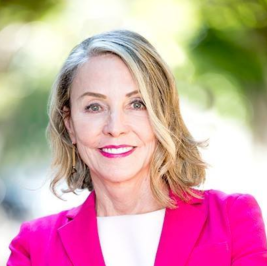 This one is fascinating – it’s a highly contested race between two candidates who are hard to distinguish politically, so the contest is boiling down to the candidates’ personalities and experience.
This one is fascinating – it’s a highly contested race between two candidates who are hard to distinguish politically, so the contest is boiling down to the candidates’ personalities and experience.
Incumbent Supervisor Vallie Brown was appointed by Mayor Breed to fill her old Supervisor seat this year. Brown started in politics as a neighborhood activist, and has worked in the District 5 Supervisor’s office for more than a decade. Because of her work in the community, she knows the district inside and out. In her short time as Supervisor, she’s been focused on solving homelessness, affordable housing, improving Muni, and gender and equity issues. She’s terrific at constituent services, and she’s adept at forging compromise between the warring factions inside city hall.
Brown was an interesting choice for Mayor Breed because their politics aren’t always aligned. Supervisor Brown has split with the Mayor on some important issues – notably Prop C, the homelessness measure that passed in the 2018 election, which would raise $300 million in taxes from the city’s largest businesses to fund homeless services.
Brown’s main competitor, Dean Preston, made his political debut three years ago when he ran against then-Supervisor Breed. Preston is the founder of Tenants Together, a statewide renters’ rights group. He’s a Democratic Socialist and Bernie bro. He has argued that Brown isn’t aggressive enough on housing and homelessness issues. He has never held elective office, and it shows; his proposals on how to build new housing and enable free Muni are completely unworkable.
I’m supporting Vallie because I find her to be thoughtful and pragmatic. She cares a lot about the district, and has no ambition beyond Supervisor, which is refreshing. She prefers to get things done over getting publicity for herself. Frankly, in today’s political environment I think we need more workhorses (and fewer show ponies) in political office.
Supporters of Vallie Brown: Mayor Breed; US Senator Dianne Feinstein; Senator Scott Wiener; Supervisors Yee, Fewer, Stefani, Walton & Safai; SF Chronicle; SF Examiner; SF Democratic Party; League of Conservation Voters; VoteProChoice; and many more.
Supporters of Dean Preston: Former Assemblymember Tom Ammiano; Former State Senator Mark Leno; Supervisors Mar, Peskin, Haney, Ronen & Mandelman; Tenants Union; Sierra Club; Teachers Union; and many more.
City Attorney – Dennis Herrera
Dennis Herrera is unopposed. He was first elected in 2001, and this will be his 6th term of office. The election of Donald Trump has breathed new life into this veteran politician – Dennis seems to be enjoying suing the White House at every turn for its cruel and unconstitutional policies. Go get ‘em, Dennis!
District Attorney – Suzy Loftus!!
This is an electrifying race between Suzy Loftus and Chesa Boudin, who couldn’t be more different from each other. They agree on many social justice issues, including reforming the police department and the criminal justice system, but the similarities stop there.
Two other candidates in this race – Nancy Tung and Leif Dautch – aren’t getting as much attention. Tung is a Deputy DA who is the most tough-on-crime candidate in the race. Her key endorsements come from other prosecutors and some retired judges. Dautch is a Deputy Attorney General and former President of the San Francisco Juvenile Probation Commission, who has the endorsements of State Treasurer Fiona Ma as well as a few local Democratic clubs.

Photo Credit: Rick Gerharter
Loftus was recently called the “front runner” by the SF Chronicle, in part because she has the backing of the SF Democratic Party, and most elected officials and Democratic clubs in town. She is a former Deputy District Attorney and President of the Police Commission, who has worked in criminal justice her entire career. She has an impressive resumé, and she has also rolled up her sleeves in the community to help children in Bayview-Hunters Point deal with the trauma of violence and adversity. She’s a mother of three, and has a progressive approach to policing. Loftus is committed to criminal justice reform and she is focused on quality of life crimes that San Franciscans desperately want addressed. A former prosecutor, she is campaigning on putting more law enforcement resources into stopping the car break-in epidemic, holding perpetrators of sexual violence accountable, and working to rebuild the community’s trust in the police force.
Chesa Boudin is a public defender who is running a pro-reform, anti-police campaign. He is intimately familiar with the criminal justice system, as his parents were convicted when he was 14 months old for participating in the murders of two police officers and a security guard. He is legit, in that he is well educated and brings the perspectives of the accused and the convicted to his campaign. He wants to hold police officers accountable when they commit crimes, and he wants to deprioritize misdemeanors.
I’m all for reforming the criminal justice system – it is racist and classist and backward. However, there are crimes that must be prosecuted – both felonies AND misdemeanors. The city has a property crime epidemic – my own apartment was burglarized twice this year – so I think it’s irresponsible for Boudin to declare that misdemeanor crimes won’t be taken as seriously if he is elected. I worry that it will lead to even more lawlessness on our streets.
Recent polls show that the race is neck-and-neck. Boudin has the backing of some big names in entertainment including Danny Glover, Michael Franti, and John Legend. Because of his national connections, including Bernie Sanders, he’s been able to raise money from many out-of-state sources. His local support comes from the more progressive faction of City Hall, including the SF Tenants Union, several labor unions, 5 of 11 members of the Board of Supervisors, and the League of Pissed Off Voters.
By contrast, Loftus’s endorsements come from across the political spectrum, and include Governor Gavin Newsom, Senators Feinstein and Harris, and 8 of 11 members of the Board of Supervisors, as well as the SF Chronicle AND the SF Examiner. (Your math is right: 3 of the Supervisors dual endorsed).
 A funny thing happened a few weeks ago – DA George Gascon surprised all of City Hall by resigning his office before the end of his term, leaving a vacancy for the Mayor to fill. Mayor Breed appointed Loftus, her endorsed candidate, causing quite a brouhaha. The Mayor was in a pickle – the DA’s office needed someone at the helm for the last 3 months of the year, and the Mayor knew appointing Loftus would be controversial. But if she didn’t appoint her, it would imply that she didn’t have enough confidence in Suzy’s ability to win. Both Loftus and Breed were criticized for the appointment by the far left, and yet it doesn’t give Suzy any advantage in this race whatsoever. It’s too late to change her ballot designation to “incumbent,” and it only gives Loftus additional work to do while running for the office. Ultimately, the appointment probably did more harm to Suzy’s campaign than good.
A funny thing happened a few weeks ago – DA George Gascon surprised all of City Hall by resigning his office before the end of his term, leaving a vacancy for the Mayor to fill. Mayor Breed appointed Loftus, her endorsed candidate, causing quite a brouhaha. The Mayor was in a pickle – the DA’s office needed someone at the helm for the last 3 months of the year, and the Mayor knew appointing Loftus would be controversial. But if she didn’t appoint her, it would imply that she didn’t have enough confidence in Suzy’s ability to win. Both Loftus and Breed were criticized for the appointment by the far left, and yet it doesn’t give Suzy any advantage in this race whatsoever. It’s too late to change her ballot designation to “incumbent,” and it only gives Loftus additional work to do while running for the office. Ultimately, the appointment probably did more harm to Suzy’s campaign than good.
Regardless, I’m voting for Loftus because I think San Francisco needs a DA who will tackle our public safety challenges with both courage AND compassion. There is no doubt that the criminal justice system is broken, but I’d rather hire a mom with prosecutorial experience over a public defender who wants to prioritize reform over safety.
I’d like to add that Suzy is a just a badass. She is raising three young children in San Francisco, while taking care of her mom AND running for office at the same time. (And I think parenting one toddler is hard!) Suzy is one of the hardest working people I have ever met, and I trust her with solving some of the city’s most intractable problems.
Supporters of Suzy Loftus: SF Chronicle; Bay Area Reporter; Governor Gavin Newsom; Senators Feinstein and Harris; SF Democratic Party; Civil Rights Leader Dolores Huerta; Supervisors Yee, Mandelman, Brown, Stefani, Walton, Safai, Mar, Haney; SF Bicycle Coalition; SF Janitors Union Local 87
Supporters of Chesa Boudin: Senator Bernie Sanders; Harvey Milk LGBT Democratic Club; League of Pissed Off Voters; San Francisco Green Party; Teachers Union; Former State Senator Mark Leno; Supervisors Fewer, Peskin, Mar, Haney, and Ronen
Public Defender – Mano Raju
Mano Raju was appointed by Mayor London Breed after the sudden death of Jeff Adachi earlier this year. Raju was one of Adachi’s chief deputies, and is well liked by the office. He is unopposed.
Sheriff – Paul Miyamoto

Credit: Kevin N. Hume/S.F. Examiner
Paul Miyamoto has served in the Sheriff’s Department for more than 20 years, and has served on the command staffs of three sheriffs. He has run for Sheriff before, against Ross Mirkarimi in 2011. This time, there is a good chance he will win…because he is the only candidate in the race. He’s been endorsed by the outgoing Sheriff Vicki Hennessey, Mayor Breed, and just about everyone else.
Treasurer – Jose Cisneros
Jose Cisneros was first elected Treasurer in 2005, after being appointed by then-Mayor Gavin Newsom in 2004 to fill a vacancy. He is doing a fine job by all accounts, and he is unopposed this time around.
School Board (one seat) – Jenny Lam
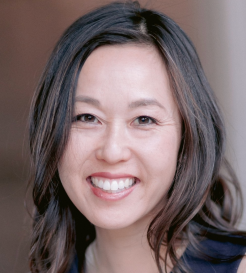 There are three candidates for this seat, but Jenny Lam is the one. She was appointed by Mayor Breed in January to replace Matt Haney who was elected to the Board of Supervisors. Her day job is Mayor Breed’s education advisor, and she previously worked at Education SuperHighway, a San Francisco nonprofit working to bring high-speed internet to classrooms nationwide. Her two challengers have little connection to education, and haven’t put together viable campaigns. Because of this, Lam has been endorsed by literally everybody. I am voting for her.
There are three candidates for this seat, but Jenny Lam is the one. She was appointed by Mayor Breed in January to replace Matt Haney who was elected to the Board of Supervisors. Her day job is Mayor Breed’s education advisor, and she previously worked at Education SuperHighway, a San Francisco nonprofit working to bring high-speed internet to classrooms nationwide. Her two challengers have little connection to education, and haven’t put together viable campaigns. Because of this, Lam has been endorsed by literally everybody. I am voting for her.
SF Community College Board (one seat) – Ivy Lee is unopposed
 Ivy is unopposed, but I will still say a few nice things about her. She is a City Hall veteran, as she worked for many years as a Board of Supervisors aide to both Supervisors Norman Yee and Jane Kim. She was appointed to the College Board by Mayor Breed In 2018 to fill a vacancy. No one is running against her, at least in part because she has the chops – she was an architect of the Free City College program, and she has fought to stabilize City College and improve the education environment for the 63,000 students the college serves. I’m voting for her.
Ivy is unopposed, but I will still say a few nice things about her. She is a City Hall veteran, as she worked for many years as a Board of Supervisors aide to both Supervisors Norman Yee and Jane Kim. She was appointed to the College Board by Mayor Breed In 2018 to fill a vacancy. No one is running against her, at least in part because she has the chops – she was an architect of the Free City College program, and she has fought to stabilize City College and improve the education environment for the 63,000 students the college serves. I’m voting for her.
As always, I welcome your input in the comments below, or on Facebook or Twitter. Tell me why I’m wrong! I love a good debate.
Thanks for reading.

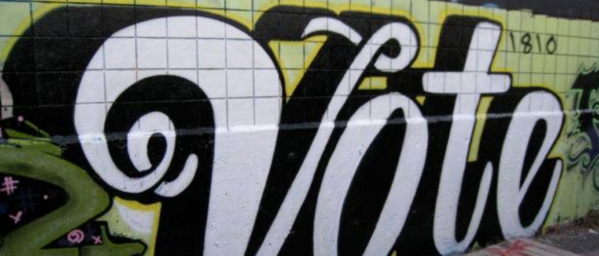



 Former State Senator Mark Leno is a strong candidate for Mayor, as he was a solid legislator, both at the Board of Supervisors and in the State Senate. However, I have been profoundly disappointed in the negativity coming out of his campaign in recent months. I have known Mark for years, and I have been surprised to see how low he has been willing to stoop when the polls started showing him losing the race. If you’ve seen the ads, you know what I’m talking about.
Former State Senator Mark Leno is a strong candidate for Mayor, as he was a solid legislator, both at the Board of Supervisors and in the State Senate. However, I have been profoundly disappointed in the negativity coming out of his campaign in recent months. I have known Mark for years, and I have been surprised to see how low he has been willing to stoop when the polls started showing him losing the race. If you’ve seen the ads, you know what I’m talking about.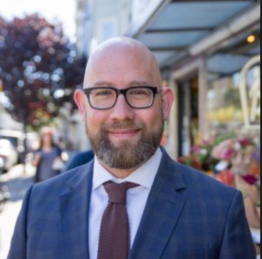

 If you are a renter in San Francisco, you know what it feels like to have housing insecurity. In the last decade, the volatility of the housing market has been terrifying for many of us. Prop F promises an important safeguard against unfair evictions: It will require the city to provide legal representation for any residential tenant facing an eviction lawsuit. It won’t solve the housing crisis, but it will prevent some folks who can’t afford an attorney from losing their homes.
If you are a renter in San Francisco, you know what it feels like to have housing insecurity. In the last decade, the volatility of the housing market has been terrifying for many of us. Prop F promises an important safeguard against unfair evictions: It will require the city to provide legal representation for any residential tenant facing an eviction lawsuit. It won’t solve the housing crisis, but it will prevent some folks who can’t afford an attorney from losing their homes. This one is confusing, so bear with me. Prop H was put on the ballot by the police officers’ union because it was frustrated by the city’s unwillingness to enact a policy allowing cops to use tasers. Since then, the Police Commission did enact a taser policy, thus rendering Prop H moot. The proponents of Prop H still want it to pass, though, because they want it to be codified into law that can only be repealed by the voters, which I think is a terrible idea. This is exactly the kind of law that needs to be decided by representatives in city government (i.e., police commission or the board of supervisors), so that they can amend it or repeal it if tasers turn out to be a bad idea (which I personally think they are). If Prop H passes, it will undermine the ability of the Police Department and the Commission to set law enforcement policy. Just about everybody agrees that Prop H is terrible, including all of the major candidates for Mayor, the Police Chief (!!), the District Attorney AND the Public Defender, the ACLU and every local newspaper.
This one is confusing, so bear with me. Prop H was put on the ballot by the police officers’ union because it was frustrated by the city’s unwillingness to enact a policy allowing cops to use tasers. Since then, the Police Commission did enact a taser policy, thus rendering Prop H moot. The proponents of Prop H still want it to pass, though, because they want it to be codified into law that can only be repealed by the voters, which I think is a terrible idea. This is exactly the kind of law that needs to be decided by representatives in city government (i.e., police commission or the board of supervisors), so that they can amend it or repeal it if tasers turn out to be a bad idea (which I personally think they are). If Prop H passes, it will undermine the ability of the Police Department and the Commission to set law enforcement policy. Just about everybody agrees that Prop H is terrible, including all of the major candidates for Mayor, the Police Chief (!!), the District Attorney AND the Public Defender, the ACLU and every local newspaper.




